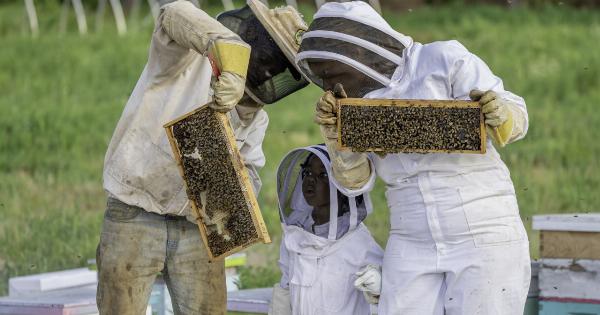Sex education is a topic that often provokes strong emotions and opinions, especially when it comes to children.
Some people believe that children should be shielded from discussions about sex until they are older, while others argue that teaching children healthy attitudes towards sex is crucial to their well-being. In this article, we will explore the question of whether children can learn healthy attitudes towards sex and the factors that influence their ability to do so.
Why sex education is important for children
There are many reasons why sex education is important for children. Perhaps most importantly, it helps them develop a healthy attitude towards sex, which can have a positive impact on their emotional, psychological, and physical well-being.
By teaching children about sex, we can help them make informed decisions about their sexual health and safety, and help prevent unwanted pregnancies and sexually transmitted infections.
Sex education can also help children understand and respect their own bodies, as well as the bodies of others. It teaches them about consent, boundaries, and the importance of communicating openly and honestly with sexual partners.
What healthy attitudes towards sex look like for children
Healthy attitudes towards sex for children means understanding that sex should be a positive and consensual experience that involves mutual respect and pleasure.
Children who have healthy attitudes towards sex understand that they have the right to say “no” to sexual activities and that they should always respect their partner’s boundaries. They also understand the importance of using protection to prevent sexually transmitted infections and unwanted pregnancies.
Children with healthy attitudes towards sex have a positive body image and self-esteem, and they are comfortable talking about sexual health and relationships with their parents and/or other trusted adults.
Factors that influence children’s ability to learn healthy attitudes towards sex
Age
One of the most important factors that influence children’s ability to learn healthy attitudes towards sex is age. Younger children may not have the cognitive or emotional maturity to fully understand the complexities of sex and relationships.
However, this does not mean that they should be completely excluded from discussions about sex. Instead, parents and educators can focus on age-appropriate information, such as teaching children about their bodies and boundaries, and answering their questions honestly and respectfully.
As children get older, they can gradually be introduced to more complex topics, such as the biology of sex, contraception, and healthy relationships.
Culture and values
Another factor that influences children’s ability to learn healthy attitudes towards sex is culture and values.
Different communities and families may have different values and beliefs about sex, and it is important for parents and educators to be aware of these differences and respect them.
Some parents may feel uncomfortable talking about sex with their children, while others may have different opinions about what is appropriate to discuss.
In some communities, there may be cultural or religious taboos around sex that can make discussions more challenging.
Despite these challenges, it is important to approach sex education in a non-judgmental and inclusive way, so that all children can learn healthy attitudes towards sex, regardless of their background or beliefs.
Access to information
Access to information is another important factor that can influence children’s ability to learn healthy attitudes towards sex.
In some communities or families, resources such as books, videos, or internet access may be limited, which can make it more difficult for children to access accurate and comprehensive information about sex education.
It is important for parents and educators to provide children with a variety of resources and encourage critical thinking and questioning.
They can also seek out community resources, such as libraries or online forums, to supplement their own knowledge and provide children with access to accurate and diverse information about sex and relationships.
Conclusion
Overall, while teaching children healthy attitudes towards sex can be challenging, it is essential for their emotional, psychological, and physical well-being.
By focusing on age-appropriate information, respecting cultural and values differences, and providing access to information, parents and educators can help children develop a positive and respectful attitude towards sex that will benefit them throughout their lives.


























